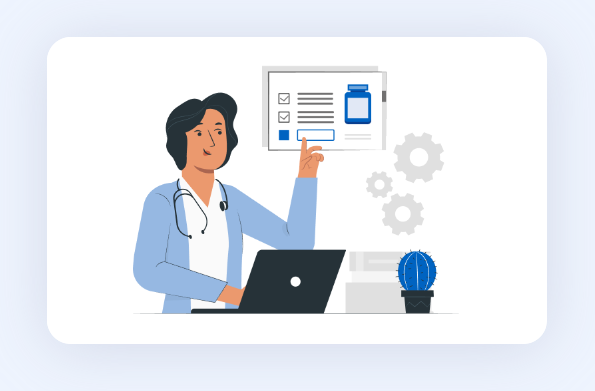Artificial Intelligence (AI) is revolutionizing industries worldwide, and healthcare is no exception. The integration of AI technologies into healthcare systems promises to enhance efficiency, improve patient outcomes, and reduce costs in the long term. However, adopting AI comes with its own set of challenges, particularly concerning the financial investment required. This article delves into the cost of artificial intelligence in healthcare, exploring its components, benefits, challenges, and future implications.
Understanding the Financial Landscape of AI in Healthcare
The cost of artificial intelligence in healthcare can vary significantly depending on several factors, including the complexity of the AI solution, the scale of deployment, and the specific use case. Here are the primary cost components:
1. Development Costs
Developing AI solutions for healthcare often requires significant resources. Costs include:
- Data Collection and Processing: AI relies on vast amounts of high-quality data. Collecting, cleaning, and labeling healthcare data is time-intensive and costly.
- Algorithm Development: Designing and training AI models tailored to specific healthcare applications demands expertise and computational power.
- Testing and Validation: AI systems must undergo rigorous testing to ensure accuracy and safety, especially in life-critical scenarios.
2. Implementation Costs
Deploying AI in healthcare settings involves:
- Infrastructure Investments: Hospitals and clinics may need to upgrade IT systems, including servers, cloud storage, and high-speed networks.
- Integration: AI tools must be seamlessly integrated with existing electronic health records (EHRs) and other software systems.
- Staff Training: Healthcare professionals require training to effectively use AI tools, which adds to the initial costs.
3. Maintenance and Operational Costs
Maintaining AI systems involves ongoing expenses, including:
- Software Updates: Ensuring that AI algorithms remain accurate and up-to-date.
- System Monitoring: Regular oversight to prevent and address potential malfunctions or biases.
- Data Privacy and Security: Safeguarding sensitive patient data against cyber threats.
4. Regulatory and Compliance Costs
Healthcare AI systems must comply with stringent regulations and standards. Costs include obtaining certifications, conducting audits, and adhering to data privacy laws such as HIPAA and GDPR.
Benefits Justifying the Investment
Despite the high initial investment, the cost of artificial intelligence in healthcare is often justified by the significant benefits it brings:
1. Improved Diagnostics
AI can analyze medical images, lab results, and patient histories with remarkable accuracy, often surpassing human capabilities. Early detection of diseases like cancer and Alzheimer’s can save lives and reduce treatment costs.
2. Operational Efficiency
AI-powered tools streamline administrative tasks, such as scheduling, billing, and patient intake, freeing up healthcare staff to focus on patient care.
3. Personalized Medicine
By analyzing genetic and lifestyle data, AI enables tailored treatment plans, improving patient outcomes and reducing trial-and-error approaches.
4. Drug Discovery and Development
AI accelerates drug discovery by identifying potential compounds and predicting their efficacy, significantly lowering research costs and timeframes.
5. Remote Patient Monitoring
AI-driven devices monitor patients’ vital signs in real-time, reducing the need for hospital visits and preventing complications through early intervention.
Challenges Impacting the Cost of Artificial Intelligence in Healthcare
While the benefits are clear, challenges associated with implementing AI in healthcare contribute to its overall cost:
1. High Upfront Investment
Smaller healthcare providers may struggle to afford the initial costs associated with AI adoption, leading to disparities in access.
2. Data Privacy and Ethical Concerns
Ensuring the ethical use of AI and protecting patient data involves complex and costly measures, including encryption and compliance with regulatory standards.
3. Resistance to Change
Healthcare professionals may be reluctant to adopt AI due to concerns about job displacement or trust in machine-generated recommendations. Overcoming this resistance requires investment in change management and education.
4. Bias and Inaccuracy
AI systems trained on biased or incomplete data can produce inaccurate results, leading to potential harm. Mitigating this risk involves additional costs for data diversity and ongoing validation.
5. Interoperability Issues
Integrating AI tools with existing healthcare systems is complex and expensive, particularly when dealing with outdated or proprietary technologies.
Cost-Saving Opportunities Through AI
Ironically, the cost of artificial intelligence in healthcare also presents opportunities for significant savings over time:
1. Reducing Readmissions
AI predicts patient risks and provides proactive care recommendations, reducing costly hospital readmissions.
2. Optimizing Resource Allocation
AI helps healthcare facilities optimize staff schedules, manage inventory, and predict patient volumes, improving operational efficiency.
3. Minimizing Diagnostic Errors
Accurate diagnostics prevent unnecessary tests and treatments, reducing overall healthcare expenses.
4. Accelerating Administrative Tasks
Automation of repetitive tasks cuts down on administrative overheads, saving both time and money.
Case Studies Highlighting Costs and Benefits
1. AI in Radiology
Several hospitals have implemented AI systems to analyze radiology scans. The initial investment ranged from $500,000 to $1 million, but these systems significantly reduced the workload of radiologists, increased diagnostic accuracy, and led to faster patient care.
2. AI in Chronic Disease Management
AI-powered apps for diabetes management cost around $200,000 to develop but have demonstrated a reduction in hospitalization rates, saving millions in long-term costs.
3. AI in Drug Development
Pharmaceutical companies using AI for drug discovery report cost reductions of up to 30%, translating to billions of dollars saved during the research and development phases.
The Future of AI Costs in Healthcare
As AI technologies advance, the cost of artificial intelligence in healthcare is expected to decrease over time due to:
- Technological Advancements: Improved computational power and more efficient algorithms will reduce development and operational costs.
- Economies of Scale: Widespread adoption will lead to standardized solutions and lower costs.
- Increased Competition: More players in the AI healthcare market will drive down prices.
- Government Support: Incentives and subsidies for AI adoption in healthcare could offset initial investments.
Conclusion
The cost of artificial intelligence in healthcare represents a significant barrier for many organizations, but the long-term benefits often outweigh the initial investment. AI has the potential to transform healthcare, making it more efficient, personalized, and accessible. However, addressing challenges such as high upfront costs, data privacy concerns, and system integration is crucial to maximizing its impact.
Healthcare providers, policymakers, and technology developers must collaborate to make AI more affordable and accessible. By doing so, we can unlock the full potential of AI, ultimately improving patient outcomes and revolutionizing the healthcare industry.

